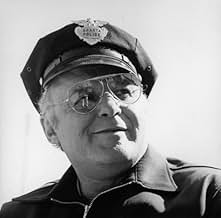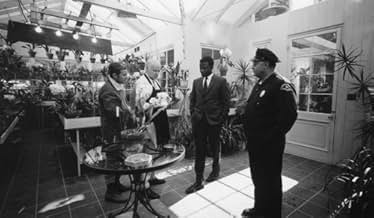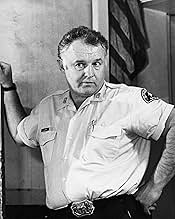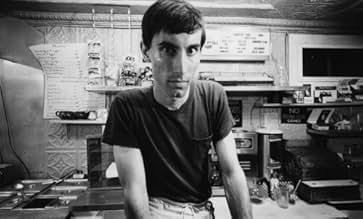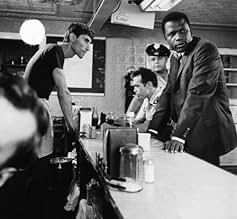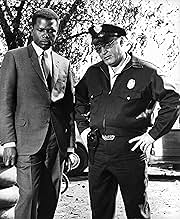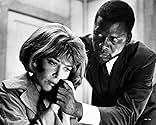A black Philadelphia police detective is mistakenly suspected of a local murder while passing through a racially hostile Mississippi town, and after being cleared is reluctantly asked by the... Read allA black Philadelphia police detective is mistakenly suspected of a local murder while passing through a racially hostile Mississippi town, and after being cleared is reluctantly asked by the police chief to investigate the case.A black Philadelphia police detective is mistakenly suspected of a local murder while passing through a racially hostile Mississippi town, and after being cleared is reluctantly asked by the police chief to investigate the case.
- Won 5 Oscars
- 23 wins & 16 nominations total
- McNeil
- (as William C. Watson)
- Director
- Writers
- All cast & crew
- Production, box office & more at IMDbPro
Featured reviews
"Mississippi Burning," a weaker effort, is not only more tediously didactic, but also less progressive; that film doesn't feature a protagonist like Virgil Tibbs, and instead focuses on the actions of two white federal agents. In this case, the old movie really is the better movie; produced at the height of the civil rights struggle, "In the Heat of the Night" feels more immediate and passionate than preachy films on the subject that were made years later, after the tension had died down.
Some reviewers complain that the mystery segments of the film are confusing, but I follow them without much trouble. Tibbs does a great Sherlock Holmes routine throughout, as he pieces together the solution based on clues that are also available to viewers. Sure, the ending is surprising, but it doesn't come entirely out of left field; I actually admire the subtle ways that clues are sewn throughout the film. If you're not used to mysteries, the barrage of red herrings and dead-end clues might surprise you, but it's pretty standard stuff for the genre.
I knew about the classic line "They call me Mr. Tibbs!" long before I actually saw this movie. I used to wonder why the line was so famous; it doesn't sound that exciting, does it? But when I finally heard Poitier say it in context, I asked my brother to pause the tape so I could cheer without missing any of the subsequent dialog. That's how excited I get during this movie. The performances are so naturalistic, and the racial conflict so vividly drawn, that I get pulled into the action completely. Though 1967 was a strong year for films, I still think that the right one got Best Picture, and not just because it was topical; "In the Heat of the Night" is a well-directed, superb character study, populated by some of the most vivid characters I've ever encountered in a movie.
An Academy Award winner for Best Picture, IN THE HEAT OF THE NIGHT works on so many levels. It's a solid, unpredictable whodunit with beautiful cinematography and crisp direction from Norman Jewison. All the actors are on top of their games, particularly Steiger, whose not-entirely-likable chief gradually looks past his prejudices to warm up to Poitier. Poitier is his usual superb self, once again maintaining his vast dignity as the target of bigotry, much like he did in THE DEFIANT ONES.
And like THE DEFIANT ONES, a key theme in IN THE HEAT OF THE NIGHT is racism. In fact the racism on display here is so fierce and perverse that it's almost hard to believe (though I'm sure it didn't stretch a thing). You can't help but feel an emotional attachment to Poitier as he's subjected to taunts, attempted attacks, and off-color remarks from those who either don't realize the power of their words or don't care. Poitier proves again why he is perhaps the finest African-American actor ever to grace the screen.
IN THE HEAT OF THE NIGHT is one of those movies that, while not perfect, is impossible to dislike. It's classic, though still relevant, entertainment.
Although the Best Picture was a strong one, apart from 'Doctor Doolittle', 'In the Heat of the Night' this reviewer finds the best of the five and also one of the greatest films of the 60s.
Visually, 'In the Heat of the Night' is an incredibly well-made film with cinematography that's both beautiful and gritty. It is immaculately directed also by Norman Jewison, who directed several other great films, and film and sound editing are also very good, fluid with a suitable unpleasantness which suits the atmosphere well and thrillingly authentic. Quincy Jones' soundtrack at least fits and evokes some good atmosphere, the title song sung by Ray Charles is a classic.
The script is incredibly thought-provoking with the racial tension tensely and vividly drawn, never resorting to heavy-handedness or talking at you, something that films with heavy subjects don't always achieve. The "they call me Mr Tibbs" line is iconic. The story is a gripping powerhouse and very ahead of and daring for its time with tremendous power, edge and emotion.
Characters are compelling, and the acting couldn't have been better. Rod Steiger has never been better as the bigoted police chief, and Sidney Poitier matches him every step of the way in a subtler and no less powerful performance. Warren Oates and Anthony James stand out in the uniformly strong supporting cast.
Overall, fantastic film and one of the greatest films of its decade. 10/10 Bethany Cox
Oscars Best Picture Winners, Ranked
Oscars Best Picture Winners, Ranked
Did you know
- TriviaSidney Poitier insisted that the movie be filmed in the North because of an incident in which he and Harry Belafonte were almost killed by Ku Klux Klansmen during a visit to Mississippi. That's why Sparta, IL, was chosen for location filming. Nevertheless, the filmmakers and actors did venture briefly into Tennessee for the outdoor scenes at the cotton plantation, because there was no similar cotton plantation in Illinois that could be used. Poitier slept with a gun under his pillow during production in Tennessee. He did receive threats from local racist thugs, so the shoot was cut short and production returned to Illinois.
- GoofsThe police chase Harvey Oberst through the yellow leaves of an autumn forest, clearly indicating that it is not the middle of summer, as claimed in the movie. This film takes place in September, as indicated by the calendar in the Sheriff's office and not summer.
- Quotes
Gillespie: Virgil? That's a funny name for a nigger boy that comes from Philadelphia. What do they call you up there?
Virgil Tibbs: They call me MISTER TIBBS!
- Crazy creditsNo uppercase ("capital") letters are used in the opening and closing credits, including the film's title, cast and characters, crew and job titles, and company credits.
- Alternate versionsThe VHS prints use the 1982 United Artist variant.
- ConnectionsFeatured in Film Review: Film Review (1967)
- SoundtracksIn the Heat of the Night
Music by Quincy Jones (uncredited)
Lyrics by Alan Bergman (uncredited) and Marilyn Bergman (uncredited)
Sung by Ray Charles
Details
- Release date
- Country of origin
- Language
- Also known as
- Al calor de la noche
- Filming locations
- Sparta, Illinois, USA(Sparta, Mississippi)
- Production company
- See more company credits at IMDbPro
Box office
- Budget
- $2,000,000 (estimated)
- Gross worldwide
- $27,669
- Runtime
- 1h 50m(110 min)
- Color
- Aspect ratio
- 1.85 : 1




